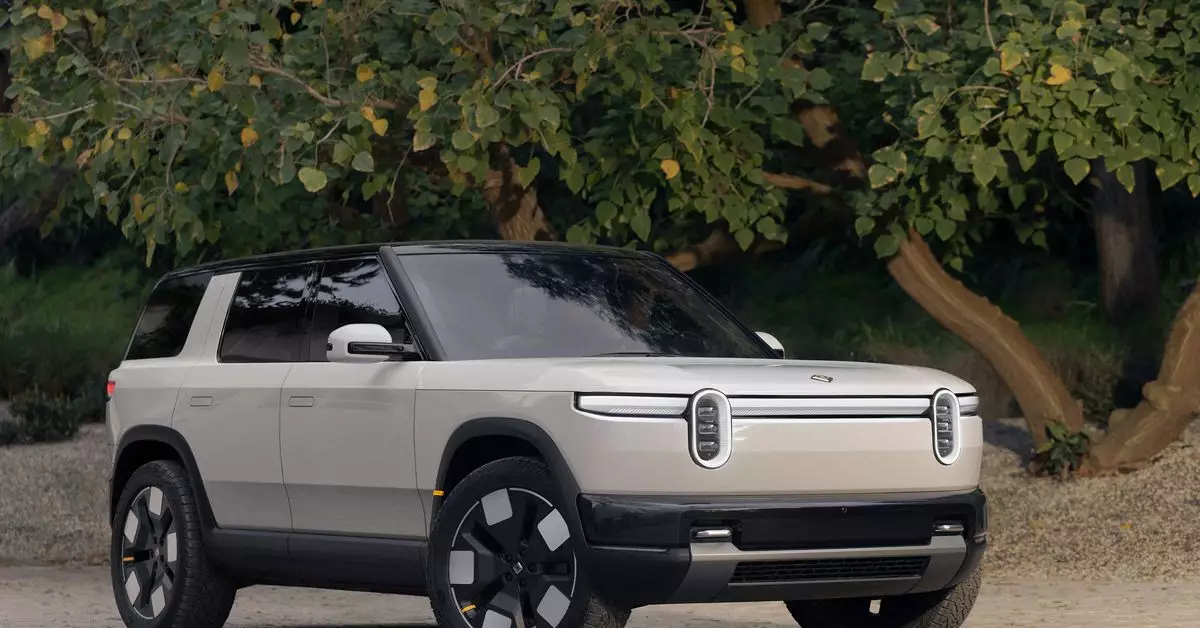In the recent shift towards electric vehicles (EVs), Rivian stands at a pivotal moment with its announcement regarding the R2 series. This new line of electric SUVs is not simply a continuation of its ambitious automotive vision; it represents a calculated response to evolving market dynamics, regulatory pressures, and competitive challenges. The company’s commitment to domestic battery production, utilizing LG Energy Solution’s capabilities, marks a significant milestone not just for Rivian but for the wider EV industry.
Rivian has announced that its R2 vehicles will feature batteries produced in the United States, a strategic decision that aligns with the Domestic Manufacturing requirements stipulated by the Inflation Reduction Act (IRA). Historically, many automakers relied on overseas production for battery components. Rivian’s shift signals a broader trend where manufacturers aim to localize their supply chains to meet regulatory standards and qualify for federal subsidies. This move is essential as it not only helps Rivian align with tax credit requirements but also positions the company as a serious contender in the competitive landscape of EV manufacturing.
With the increasingly stringent requirements regarding battery sourcing and production, many automakers are rushing to establish domestic networks. The decision to partner with LG Energy Solution, a well-established battery manufacturer, could provide Rivian with not just compliance but also a much-needed competitive edge. The production of batteries domestically at LG’s facility in Queen Creek, Arizona, is a calculated response to a market that values sustainability as much as profitability.
The introduction of the R2 also brings with it the new “4695” battery cell design, a significant evolution from previous models. With a diameter of 46 millimeters and a height of 95 millimeters, these cells are larger than Tesla’s renowned 4680 cells, suggesting an advancement in battery technology that Rivian hopes will yield superior efficiency. The reported improvements in weight, complexity, and cost are promising, indicating that Rivian is not just keeping pace with industry standards but potentially setting new benchmarks for energy storage solutions in EVs.
Rivian’s assertions that the next-generation battery will enable a notable reduction in costs per kilowatt-hour (kWh) at the pack level are crucial. A leaner battery design that incorporates fewer cells overall can streamline manufacturing processes and reduce overhead costs. This efficiency could translate into a more affordable vehicle for consumers, further bolstering Rivian’s appeal in an increasingly crowded electric SUV market.
The landscape for electric vehicle manufacturers is fraught with uncertainty, particularly with political shifts that threaten to reshape incentives for EV production and ownership. The anticipated return of Donald Trump to political office raises questions not just about future tax credits for EV buyers but also about the sustainability of government support for emerging EV companies like Rivian.
As Rivian prepares to bring the R2 to production within the first half of 2026, it faces an environment where political decisions could significantly impact its business model. The potential repeal of EV incentives could deter consumers, thereby affecting sales projections. Moreover, Trump’s potential implementation of tariffs on imported goods may complicate Rivian’s supply chain, making it imperative for the company to swiftly adapt to any new regulations.
Rivian’s approach to launching the R2 series amid regulatory requirements and potential shifts in political leadership exemplifies the delicate balancing act that EV manufacturers must perform. By investing in domestic battery production and innovative technologies, Rivian seeks to solidify its position in the automotive market. However, the road ahead remains uncertain, laden with both potential and obstacles that the company must navigate carefully. As the demand for electric vehicles continues to grow, Rivian’s ability to adapt to these changing dynamics will ultimately determine its success in this burgeoning industry.

